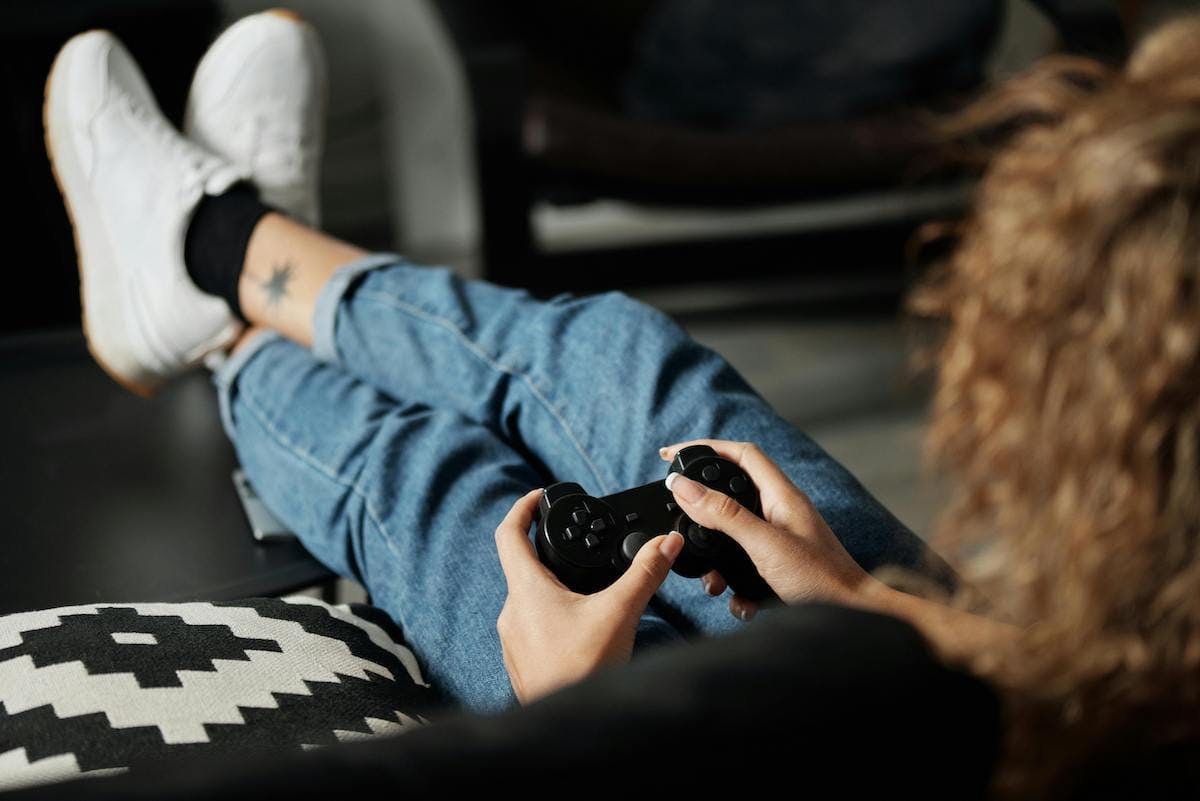
Gaming is one of the UK’s most popular hobbies, so how can you make it work in a relationship?
Video gaming, and how it’s perceived, has come a long way since the solitary gamer stereotype we were presented with back in the 90s and early 2000s. Where skepticism and doubt once dogged the medium, now we see a shift towards the positive, with gaming credited for being a helpful tool rather than one that causes harm.
Many players, both avid and casual alike, have found that immersing themselves in these fantastical worlds – running pixelated farms and/or finishing various quests – has proven a salve through difficult times. Similar to losing yourself in a good book or rewatching your favourite films, video games offer us active escapism where we, sometimes literally, captain our own destinies.
However, maintaining a balance between real life and video gaming can prove tricky, even more so when you’re in a relationship. Regardless of whether your partner is a dedicated gamer like yourself, or if gaming is a whole new world to them, not finding an equilibrium both parties agree on can lead to tense situations. As with any entertainment medium, moderation is key. To try to help other gamers navigate the fine balance between relationships and video gaming, I’ve combined my personal experiences and industry expertise to create a helpful list to make finding that balance a little easier.
Communicate expectations
Although this may seem like an obvious suggestion, openly communicating our needs and feelings can be incredibly difficult, even with a loved one. This is especially true if you’re in a relationship with someone who doesn’t game.
“Partners shouldn’t assume they immediately know how much gaming is too much,” says life coach and behavioural psychology expert, Justin Gasparovic.
As someone who plays video games both for pleasure and as part of my job, it would be unfair of me to assume my partner is comfortable with the time I spend gaming. Consequently, I try to check in regularly to make sure the hours I’m playing aren’t negatively impacting him, or causing concern.
Enjoy a shared activity
For some, video gaming is a shared activity with their partner. However, it’s also important to spend time together away from gaming, so that you can connect on a deeper level without your consoles acting as a distraction.
Although it’s healthy for partners to enjoy and pursue separate activities, it’s also important that quality time together isn’t sacrificed or diminished in favour of someone’s hobbies. The activity you choose is up to you – it could be as simple as sitting down and talking to one another – the main thing is to be present.

Be supportive
I understand completely if video gaming isn’t of interest to you. After all, we don’t need to enjoy all our partner’s interests for the relationship to work. That being said, being supportive of your partner is vital.
As Justin points out: “Critiquing a partner’s gaming can quickly be seen as criticising them.” As someone who lives with borderline personality disorder, I have had moments like this, when I’ve taken my partner’s words about my gaming the wrong way, perceiving it as an attack when it’s simply intended as an observation. This brings us back to the importance of communication alongside a supportive attitude; these tips work in tandem, not separately.
Discuss and set boundaries
This is an important tip regardless of your relationship situation. Boundaries, whether agreed upon with a partner or decided by yourself, are a good way to watch for signs of video gaming abuse and/or addiction. I don’t wish to feed into any negativity about video games, however, the truth is that addiction to the medium is possible and very real for some people. By working with a loved one to set boundaries, they can support you in becoming more aware of any possible issues arising from too much gaming.
Set time limits
I appreciate that setting time limits sounds drastic, but as someone who’s easily lost a whole day to playing Stardew Valley, sometimes you need to be stern with yourself.
This is especially important if you need to focus on other tasks. One option might be to set a timer on your phone or, if you’re really struggling to adhere to an allotted time, download a time management app. These types of apps can temporarily ‘lock you out’ of certain programmes or sites, which is particularly handy for those of you who game on your PC and/or mobile. As Justin reaffirms: “Overall, the goal is balance, ensuring gaming enhances and does not detract from other life priorities.” Game on!

